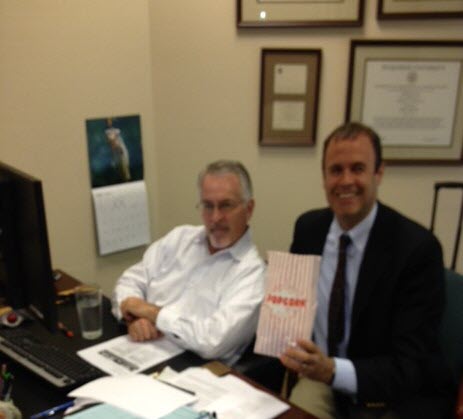Podcast: Play in new window | Download

Listen to Karl Schieneman, Founder and President of Review Less, a remote review document review company talk to e-discovery litigator Tom Gricks from Schnader Harrison about our views on the recent two Technology Assisted Review (TAR) or Predictive Coding papers authored by Maura Grossman and Dr. Gordon Cormack. One paper was highly critical of our law review article entitled The Implications of Rule 26(g) on Technology Assisted Review which they called Comments on The Implications of Rule 26(g) on Technology Assisted Review. Tom and I both worked together in developing the workflow used in the Global Aerospace case, which was the first TAR case argued where one side wanted to use TAR and the other side disagreed. Of course we won that argument.
This is a fairly technical show and though the points of disagreement between national experts may be entertaining to the novice listener, it may not be appreciated by someone who has little understanding of predictive coding. We jump right into the issues and points of disagreement so it requires some familiarity with richness or prevalence in a collection and how that will change your search strategy as well as the differences between a random search using TAR and a seeding search using TAR.
The photograph used to promote the show has a funny story behind it as Tom Gricks and I popped a bag of popcorn and watched a DVD of the first debate I had with Maura Grossman in Chicago earlier this year. Of course we emailed the photograph to both Gordon and Maura as a friendly joke because we analogize seeding of documents in TAR to making a bag of popcorn in a microwave. With little measurement, you know you are done when the popping sound stops. It was a humorous exchange of emails that we had which we all laughed at. Now that we are more publicly disagreeing with each other at times, I think it is important to remember this intended not to be a personal discussion about disagreements but is intended to be a form of peer review in which we collectively help lawyers decide how to use technology to improve their review results.
Recorded 11/18/2014
- ESIBytes





